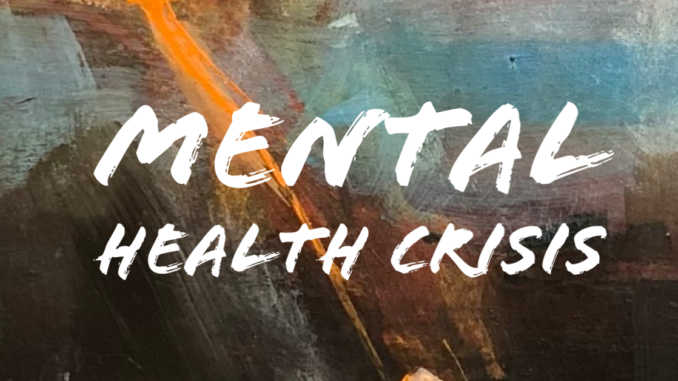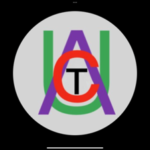
More and more people are suffering from common mental health distress, but the availability and accessibility of therapeutic help via the NHS Talking Therapies (NHS TT) has become severely limited, including in some cases a denial of care. NHS TT claim to provide a successful adult mental health service, but this is based on their own statistical data which is presented in a misleading way. Neither IAPT nor NHS TT has been subjected to independent audit. An independent review is now crucial to enable a change towards the provision of a service which can genuinely and flexibly respond to the psychological and emotional needs of our communities
As a result, several campaign groups have come together, including, Psychotherapy and Counselling Union (PCU), Universal Access to Counselling and psychotherapy (uACT), Psychotherapists and Counsellors for Social Responsibility (PCSR), The Person Centred Association (PCA) and KONP’s Bristol Protect Our NHS, to call for an urgent and independent review the provision of Community Mental Health Care via NHS Talking Therapies.
Keep reading to find out more…
What’s wrong with NHS Talking Therapies?
NHS Talking Therapies has an exceptionally high drop-out rate
Why do only one third of people referred to NHS TT finish a treatment? A further third start but do not finish, and a third do not start treatment at all. We have no idea what happens to those two thirds, or to those who finish treatment, because follow up is minimal.
NHS TT claims a 50% recovery rate. However, this is misleading because it is 50% of those who completed treatment. The recovery rate of all those referred is therefore nearer to 18%.
Restricted range of therapy options – a ‘culture of uncare’
NHS TT was established as an economic and ideological project in 2008, aimed to reduce sickness benefit and get people back to work, at times as part of the ‘workfare’ scheme. Its focus on efficiency, throughput and utilitarian values as required by New Public Management has resulted in the dominant use of a single psychological theory, cognitive behavioural therapy (CBT). Other options are web based self-help therapy or non-relational therapies using scripts.
While CBT can be helpful to some people, one size does not fit all. CBT is different from many other types of psychotherapy and counselling, in that it does not base itself in the co-creation of a therapeutic relationship and alliance. The model of psychological distress used in NHS TT is highly medical and individualised, with little recognition of the many social causes of mental health distress. Increasingly provided by private companies, with waiting lists of over one year in some parts, the service is far from responding to people’s needs, but rather, a central part of the ‘culture of uncare’.
Poor employment practice
Lack of care extends to employment practice in private companies, and sometimes the charity sector. Many therapists work for low pay, with long hours, in gig-economy contracts. Stress and burn out in therapists are common along with other mental health problems under the pressure of delivering “assembly line” therapy. In addition, there are thousands of well-trained psychotherapists and counsellors available but not employed in NHS Talking Therapies.
NHS Talking Therapies is not cost-effective
Although the cost of NHS TT is not made public, an estimation was made for NE London, coming out at £240 per session. Many counsellors and psychotherapists in private practice charge £40-60 per session.
NHS Talking Therapies fail to address inequalities of mental health care
NHS TT fails to respond effectively to common mental ill-health in our diverse communities. For example, in NE London 2021-22, 72% of less socially deprived people finished treatment and 38% ‘recovered’, compared to 57% of more socially deprived people with a 26% ‘recovered’ rate. Among the Bangladeshi community the statistics are also concerning, with 47% finishing a course of treatment and 26% recovered.
Audit and scrutiny
NHS TT is regularly praised by its leadership as a major national and international success story. However, it is not independently audited and relies on its own data collecting to justify and maintain its claims to be a successful, evidence-based service. Many critical reviews of its data suggest a different picture. Its access, drop-out and recovery rates are poor, and it is far from cost-effective. There is no evidence that any positive therapeutic benefit is effective over time. Nor is there any evidence that the prevalence of common mental health problems in the UK population has declined in the decade since the service was rolled out – on the contrary.
It is time for the reality of the failings of this service to be examined.
The petition is calling for:
An independent review and audit of the NHS Talking Therapies
A diversity of talking therapies (including relational) made available
A genuine response to community need
NOTES
1. Information sourced from:
Alternatives to NHS Talking Therapy in North East London
Cotton E. 2019 The Industrial Relations of Mental Health. In Jackson C and Rizq R (Eds) The Industrialisation of Care: Counselling & Psychotherapy in a Neoliberal Age. PCCS Books.
S.Weintrobe, Moral injury, the culture of uncare and the climate bubble, Journal of Social Work; Dec 2020
2. NHS TT statistics can be found here.
3. The ‘culture of uncare’ is a term coined by the psychotherapist Sally Weintrobe to refer to neoliberal economics that harm the planet, people and animals.






Leave a Reply